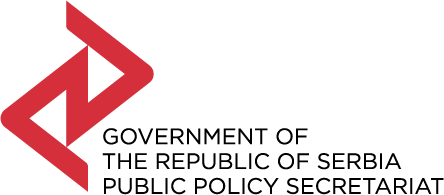The ERP is a rolling programme, which means that each new cycle of its development needs to some extent to ensure continuity in the area of priorities. The cycle begins every June when the European Commission issues detailed guidelines for the Western Balkans and Turkey, and ends in May next year with the adoption of joint conclusions at the meeting of the Economic and Financial Affairs Council (ECOFIN Council) in Brussels. The fifth cycle of the ERP development for the period 2019-2021 is underway.
The ERP consists of the part devoted to the macroeconomic situation and the monetary policy and the part which contains priority structural reforms (PSR). The development of the first part of the document is coordinated by the Ministry of Finance and the National Bank of Serbia, while the part with the PSR is coordinated by the Ministry of Finance and the Public Policy Secretariat of the Republic of Serbia. The development of the document involves the Task force for the development and monitoring of implementation of the ERP that was set up by the Minister for Finance, the national ERP coordinator.
Selected priority structural reforms are in line with priorities defined in national documents, national and regional strategies, key documents in the process of accession of the Republic of Serbia to the EU, guidelines of the European Commission (EC), and recommendations of the Economic and Financial Affairs Council (ECOFIN Council). In accordance with the EC guidelines, structural reforms in the ERP 2019-2021 are organized under eight key areas, namely: the reform of energy and transport markets; sectoral development; the business climate and the fight against the black economy; research, development and innovations, and digital economy; trade reforms; education and skills; employment and labour market, and social protection and inclusion, and these are broken down in 20 PSR.
Draft ERP 2019-2021 will be presented to the public through the websites of the Ministry of Finance and the Public Policy Secretariat of the Republic of Serbia from 4th to the 18th January 2019 before official adoption by the Government of the Republic of Serbia, after which it will be forwarded to the EC by the end of January 2019.
The ERP will be then examined together with representatives of the EU, more precisely with ministers of finance and economy, representatives of central banks of EU member states, and responsible European institutions in the course May 2019 within the economic dialogue framework at the meeting of the ECOFIN Council during which new joint recommendations for participants in the process (Western Balkans and Turkey) will be adopted.
With a view to providing the broadest consensus possible in the selection of priority structural reforms, intensive inter-departmental consultations have been carried out with line institutions through ERP coordinators as well as with civil society organisations, about which a separate Annex of the ERP document will be drafted.
We would like to ask all the interested stakeholders to send their comments and suggestions regarding the Draft Economic Reform Programme 2019-2021 to the following e-mail address: erp@mfin.gov.rs by 18 January 2019.
The ERP document for 2018-2020 as well as the ECOFIN Council recommendations of May 2018 can be found at the following web pages:

